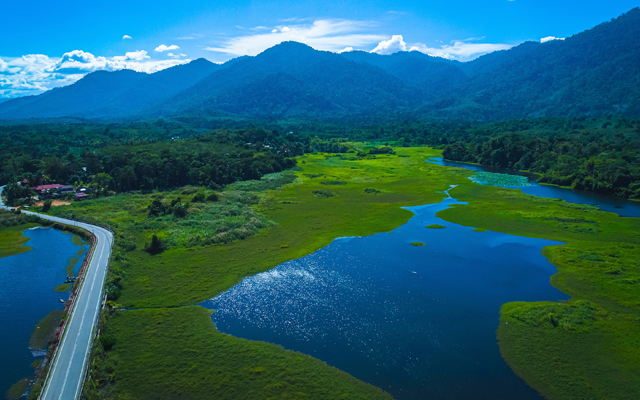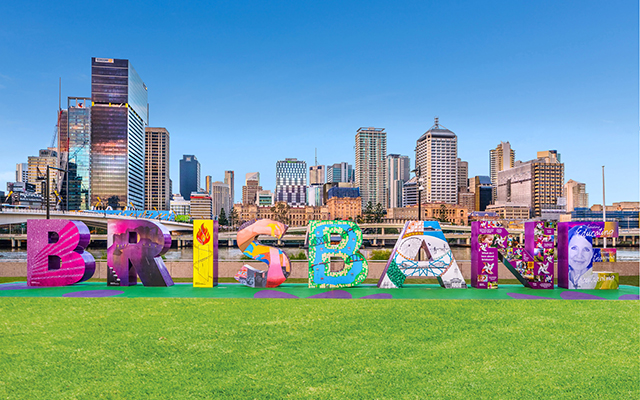Looking ahead to a post-pandemic future, tourism players in Malaysia are adapting their strategies and offerings to capture travel rebound. By S Puvaneswary.
Amid sustained headwinds from the Covid-19 pandemic, Malaysia’s ongoing vaccine rollout have lifted hopes among tourism players that travel recovery lies just around the corner. The government is aiming to inoculate at least 70 per cent of the population by December in order to achieve herd immunity by year-end.

Nigel Wong, honorary secretary-general, Malaysian Association of Tour & Travel Agents (MATTA), commented: “Achieving herd immunity will boost confidence among Malaysians to travel domestically. Herd immunity will also help with the reopening of our borders to international inbound travellers.”
While borders have been closed to international tourists since March 2020, the government is in ongoing talks to establish travel bubbles with neighbouring countries, including Singapore, Indonesia, Brunei, China, Japan, South Korea and Taiwan.
Wong said that travel bubbles will provide a critical lifeline to the tourism industry. “For the time being, the travel trade has to rely on domestic tourism, but this does not have long-term sustainability as Malaysia does not have the population mass required to rely solely on domestic tourism, unlike larger countries such as China,” he said.
On its part, the government has resumed a tourism fund dubbed Gamelan for tourism operators to tap on for promotions and marketing campaigns to spur recovery.
The fund, first introduced in July 2019 with an allocation of RM5 million (US$1.2 million), was postponed last year when the movement control order kicked in and the country shut its borders to foreign arrivals. The finance ministry has since approved the resumption of the remaining sum of over RM3,000,000 for the Gamelan programme, for use through this year on both domestic and international promotions.

To drive post-pandemic recovery, Tourism Malaysia is putting digitalisation at the heart of its marketing strategy. In April, the tourism board rolled out five interactive brochures and travel guides, in a rebranding of its digital travel brochures.
The new digital versions incorporate multimedia elements such as text, audio, graphics, animation and video, and is accessible via Tourism Malaysia’s recently revamped microsite, ebrochures.malaysia.travel.
Replacing static PDF brochures, the new site integrated with Google Maps helps users plan and navigate their journey. The site also has a share function which allows users to share posts on Facebook, Twitter, and Whatsapp, and via email.
As well, MATTA has been encouraging its members to embrace digitalisation by introducing digital adoption programmes for marketing and promotions, and lobbying local banks for better access to e-payment facilities and lower charges.
Wong said: “In the new norm, international travellers will plan their holidays by accessing services online. We are gearing up members to meet this new trend by providing them the know-how to promote and market their services online and increase their digital footprint.”
MATTA has also partnered with Bureau Veritas, a world leader in testing, inspection and certification, to deploy the “Travel Safe Malaysia” Hygiene Excellence and Safety Label, which is designed to support the operational restarting of activities in the travel and tour industry.

MATTA president, KL Tan, said: “Positioning Malaysia as a safe country will encourage travellers to choose Malaysia once travel resumes.”
Uzaidi Udanis, president of the Malaysia Tourism Council, said the agency will launch a B2B platform in July specialising in niche products, and targeted at both international and domestic travel trade players.
The platform, dubbed Universal Pass (UPass), will focus solely on Malaysian niche products that are not easily available to overseas wholesalers and not sold by OTAs.
It will give owners of niche products such as homestays, white water rafting, glamping and soft adventure an avenue to promote their services, and sell directly to local and foreign travel agents. The platform will have a reservation system that allows dynamic pricing and bookings to be made with instant confirmation.
Uzaidi, who is also the president of the Malaysian Inbound Tourism Association (MITA), said: “We are also working with state tourism boards in the country to hold workshops for their members in order to help them develop new tourism products in off-the-beaten destinations in Malaysia. These include places such as Sekinchan, Kuala Kubu Bharu and Lenggong Valley.”
Uzaidi believes that post-Covid, foreign travellers will look for unique and Instagrammable nature and cultural experiences in remote areas.
Hotels in Malaysia are also adopting digital solutions to enable a safe and contactless guest experience.
G Hotel, a leading business hotel in Penang, is looking at investing in Augmented Reality solutions that will provide 360-degree virtual tours and walkthroughs of guestrooms, facilities and meeting rooms to allow international guests to “experience” the hotel prior to booking, said its general manager, Michael Hanratty.
He added: “Besides our current contactless initiatives such as QR code menus and cashless payment options, we are also looking to capitalise digital ordering and payment via mobile application to further reduce contact and make food ordering a seamless process for guests.”
















